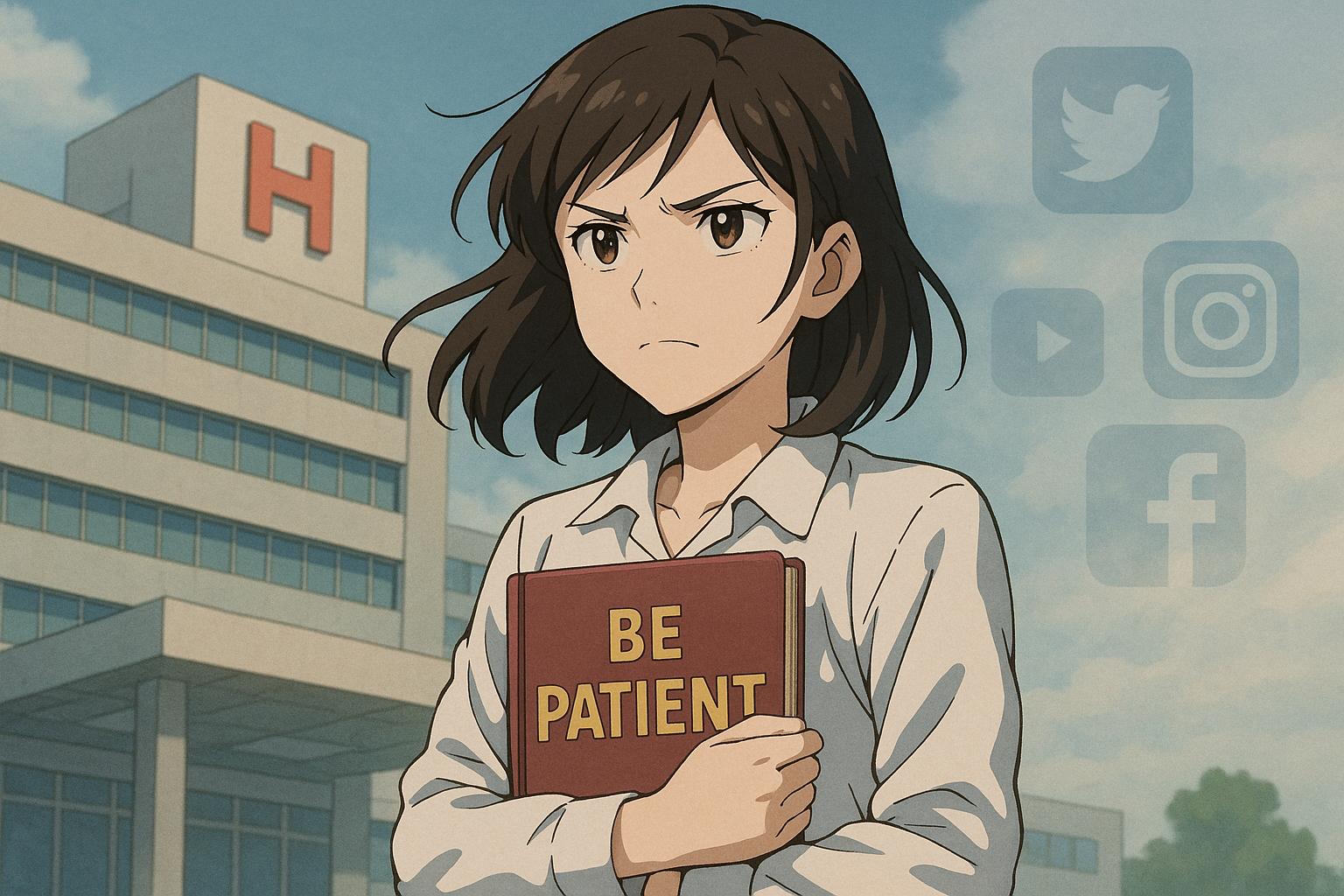For two decades, Tilly Rose has navigated the tumultuous waters of chronic illness, enduring countless hospital visits and seeking answers for a range of perplexing symptoms. Describing her experience as a relentless 'raffle of the worst kind,' she vividly recalls the frustration of a medical system that seemed incapable of piecing together her complex health puzzle. After being offered 'comfort care' during a particularly harrowing hospital stay, Tilly turned to social media, ultimately leading her to the diagnosis she had long awaited: hypermobile Ehlers-Danlos syndrome (hEDS).
Tilly's journey to diagnosis began at a young age. By the age of ten, she was grappling with serious health challenges following a burst appendix, and her teenage years became a blur of emergency hospital admissions due to recurrent pneumonias. As she reflected on this period, she revealed, “The worst bit was that nobody could explain why all these things were happening to my body.” This lack of a cohesive understanding left her feeling fragmented, as doctors divided her symptoms into separate diagnoses without recognising the interconnectedness of her condition.
Despite this disjointed medical journey, Tilly found solace in setting personal goals outside of her health struggles. A pivotal moment came during a family trip to Oxford when she resolutely aimed for a place at the prestigious University of Oxford. Achieving this dream, however, was soon overshadowed by the revelation of a long-standing, undiagnosed case of tuberculosis, contracted through unpasteurised milk. After 18 months of treatment, Tilly hoped to reclaim some semblance of normalcy, only to be met with new symptoms characteristic of an adrenal crisis—a life-threatening condition precipitated by inadequate cortisol production in the body.
“The moment I was told that diagnosis was a relief, but unfortunately, my body didn’t respond to treatment as expected,” she shared. This realization came during a critical hospital admission in London, where, after nearly three months without clarity on her condition, she turned to Instagram, sharing her plight in the hopes of gathering insights from others. The response was overwhelming, with a plethora of suggestions flowing in from medical professionals and fellow patients alike.
This surge of support became a lifeline. Tilly and her mother compiled a list of potential leads that followed a year of research, ultimately guiding her to a definitive diagnosis of hEDS. According to the Ehlers-Danlos Society, this hereditary connective tissue disorder affects joint hypermobility and can lead to severe chronic pain and instability. It is the most prevalent type of EDS, accounting for approximately 90% of cases. Early diagnosis and management are vital for improving quality of life, as the condition can result in various complications if left unaddressed.
The moment Tilly received her diagnosis marked a significant turning point. “When the professor was scanning me and found out what it was, I almost screamed out loud,” she recalled, encapsulating the mix of relief and trepidation that came with finally having a name for her symptoms. “Medicine relies on labels to provide treatment, and finally having that label was life-changing.”
Through her recent book, Be Patient, Tilly not only documents her journey but also underscores the importance of resilience and hope in the face of adversity. She expressed the special nature of fleeting moments of normalcy amid her struggles, stating, “As much as it's terrible and traumatic... those moments are more special and meaningful.” Her narrative also highlights the unsung kindness of hospital staff and fellow patients, reminding readers that the human connections formed in the most difficult times can offer profound support.
Armed with a diagnosis, Tilly is now eager to move forward, using her platform to raise awareness about patient care and the complexities of chronic illness. “It's been teamwork. It's been a slow process,” she noted, embodying the essence of patience that the title of her book conveys. Her story is a poignant reminder of the critical role that community, perseverance, and informed care play in the often arduous journey toward health and wellness.
As she looks ahead, Tilly dreams of the ordinary life she has long sought—a life unshackled from the complexities of chronic illness and marked by meaningful experiences. Her narrative not only sheds light on her personal battles but also serves as a clarion call for greater understanding and compassion in the healthcare system.
Be Patient, by Tilly Rose, is available now, offering a compelling account of resilience amid adversity.
Reference Map
- Paragraphs 1-2, 4-5, 8-10, 12-14
- Paragraphs 1-3, 6, 7
- Paragraphs 5, 7
- Paragraphs 6, 7
- Paragraphs 5, 7
- Paragraph 5
- Paragraph 5
Source: Noah Wire Services
